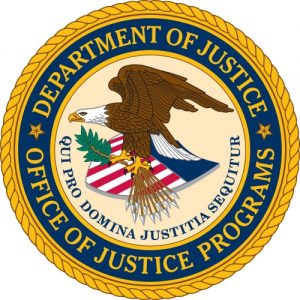The Justice Department’s Office of Justice Programs (OJP) announced last week that it had issued new guidance banning the use of agency grants to purchase drones and other unmanned aerial systems from foreign groups deemed threats.
The guidance, issued Monday but made public on Thursday, is meant to address potential cyber and foreign influence threats, and prohibits grants from being used to purchase drones from entities “determined or designated, within the Department of Justice, to be subject to or vulnerable to extrajudicial direction from a foreign government.”
The guidance also seeks to promote the security of unmanned aerial systems (UAS) by requiring applicants for OJP loans to prove they can mitigate any cybersecurity and privacy risks posed by these systems, and that the applicant has a plan to address any civil liberties-related complaints that could arise.
While the guidance does not mention any country by name, concerns have been raised around the security of Chinese drones in recent months. A provision in the House-passed 2021 National Defense Authorization Act would ban federal procurement or use of certain foreign-made drones, including those from China, due to potential national security threats.
“We take seriously concerns about the use of foreign-made UAS and the potential for related data compromise,” Deputy Attorney General Jeffrey Rosen said in a statement Thursday. “It is paramount that funding recipients take effective measures to safeguard sensitive information and the public’s privacy and civil liberties while operating these systems in a safe and secure manner.”
Chinese technology group Da-Jiang Innovations (DJI), which produces a large percentage of the world’s drones, has come under heavy scrutiny by lawmakers, though the company has pushed back strongly against concerns that it may share data with the Chinese government.
A spokesperson for DJI told The Hill that the “Justice Departmentorder will deprive hundreds of public safety agencies of alifesavingtool and put our communities’emergency workersin harm’s way, much like theInterior Department’sdrone policies have made it riskier to fight wildfires.”
“There are serious consequences to these protectionist policies that achieve no security benefit,as shown by the many independent and federal agency validations confirming that DJI products are safe and secure for government operations,” the spokesperson added.
The Justice Department policy was released the same week Secretary of the Interior David Bernhardt issued a separate guidance clearing the agency to purchase American-made drones created by a Department of Defense initiative for activities such as fighting wildfires and search and rescue operations.
The Interior Department temporarily grounded its drone fleet from use in nonemergency operations earlier this year due to cybersecurity concerns, which came three months after the agency grounded all Chinese-made drones while a security review was completed.
“While drones are important to critical Interior missions, the Department needed to ensure the technology used for these operations is such that it would not compromise our national security interests,”Interior Department press secretary Ben Goldey wrote in an email to reporters this week.
Concerns around Chinese-made drones and other unmanned aerial systems have been tied to wider moves against Chinese tech groups, such as TikTok and Huawei, due to the potential that these companies could share U.S. users’ data with Beijing.
Drone manufacturing and development groups have strongly pushed back against efforts to exclude certain foreign-made drones.
The Alliance for Drone Innovation, which represents groups including DJI, sent a letter to the leaders of the House and Senate Armed Services committees last month stressing that banning federal use of drones from certain companies could be “detrimental to the U.S. drone industry.”
“Manufacturing a drone simply cannot be done today without parts and knowledge from all over the world, and a country-based ban would hurt the Americans who build drones as well as the Americans who use them for recreation, business, conservation, and even saving lives,” the alliance wrote.
Source: The Hill

